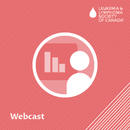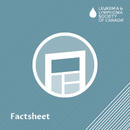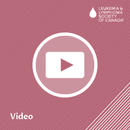Resource Library
Showing 11 to 20 of 62 results
Acute myeloid leukemia (AML): Expanding access to novel treatment and care, 2024 Leukemia Conference
Acute myeloid leukemia (AML) is a type of cancer that forms in blood cells and bone marrow that progresses rapidly if untreated. In this presentation, Dr. Brett Houston, a hematologist at the University of Manitoba, will speak about her work in clinical trials in finding ways to optimize care and improve outcomes for patients affected with acute leukemia,…
Acute lymphoblastic leukemia (ALL) affects immature white blood cells called lymphoblasts and can progresses quickly without treatment. Dr. Dawn Maze, a member of the Leukemia Program and the Elizabeth and Tony Comper MPN Program at the Princess Margaret Cancer Centre, addresses treatment of acute lymphoblastic leukemia, advances in research and management…
Chronic lymphocytic leukemia (CLL): Advances in research & treatment: 2024 Leukemia Conference, LLSC
Chronic lymphocytic leukemia (CLL) is the most common type of leukemia in adults and can vary from person to person. This is why a one-size-fits-all treatment approach is not optimal. Research advances in how we treat CLL are discussed by Dr. Anthea Peters, Hematologist at the Cross Cancer Institute in Edmonton, and Associate Professor, Department of…
Chronic myeloid leukemia (CML): Treatment options, minimizing side effects, 2024 Leukemia Conference
Chronic myeloid leukemia (CML) is a rare type of leukemia that can happen when cells that make the blood develop a genetic change called BCR-ABL1 (Philadelphia chromone). Dr. M. Lynn Savoie, hematologist at Tom Baker Cancer Centre in Calgary, Alberta, discusses treatment options, including hematopoiesis stem cell transplants, and ways to minimize side…
You or your loved one has been diagnosed with a type of blood cancer. Cancer treatment can be complex, with different types of treatment options available for some blood cancers. What are they and how do they work? This fact sheet will help you Learn about the different treatment options available, Understand each type of treatment and how it can help,…
Watch this 1-hour recorded webcast by Dr. Heather Leitch as she discusses myelodysplastic syndromes (MDS), a group of cancers of the blood and bone marrow.
Dr. Leitch is a hematologist at St. Paul’s Hospital in Vancouver, Canada and Clinical Professor in the Department of Medicine, University of British Columbia. Her clinical and research interests…
Dr. Leitch is a hematologist at St. Paul’s Hospital in Vancouver, Canada and Clinical Professor in the Department of Medicine, University of British Columbia. Her clinical and research interests…
In this 1-hour recorded webcast, hematologist-oncologist at the Princess Margaret Cancer Centre in Toronto, and DLBCL researcher, Dr. John Kuruvilla, discusses diagnosis and approach to managing and treating DLBCL, the most commonly diagnosed subtype of non-Hodgkin lymphoma.
Palliative care is appropriate for anyone with a serious illness such as blood cancer - regardless of their age, stage of disease, or prognosis. Palliative care is not limited to individuals with non-curative cancer. This type of care focusing on improving your quality of life, is sometimes called holistic care or whole–person centered care.
Caring for your child diagnosed with a blood cancer can feel like your whole world is collapsing – but of course, collapsing is not an option for you. Spending time, as early as possible, on getting help with any mental health concerns is time well spent to strengthen your support of your child.
A mother talks about how her world turned upside down when her 7-year-old daughter was diagnosed with a blood cancer. Already juggling work and family, becoming a caregiver on top of it all felt overwhelming to her. This mom's self-care took a back seat as she focused her energy on the care of her sick child.


